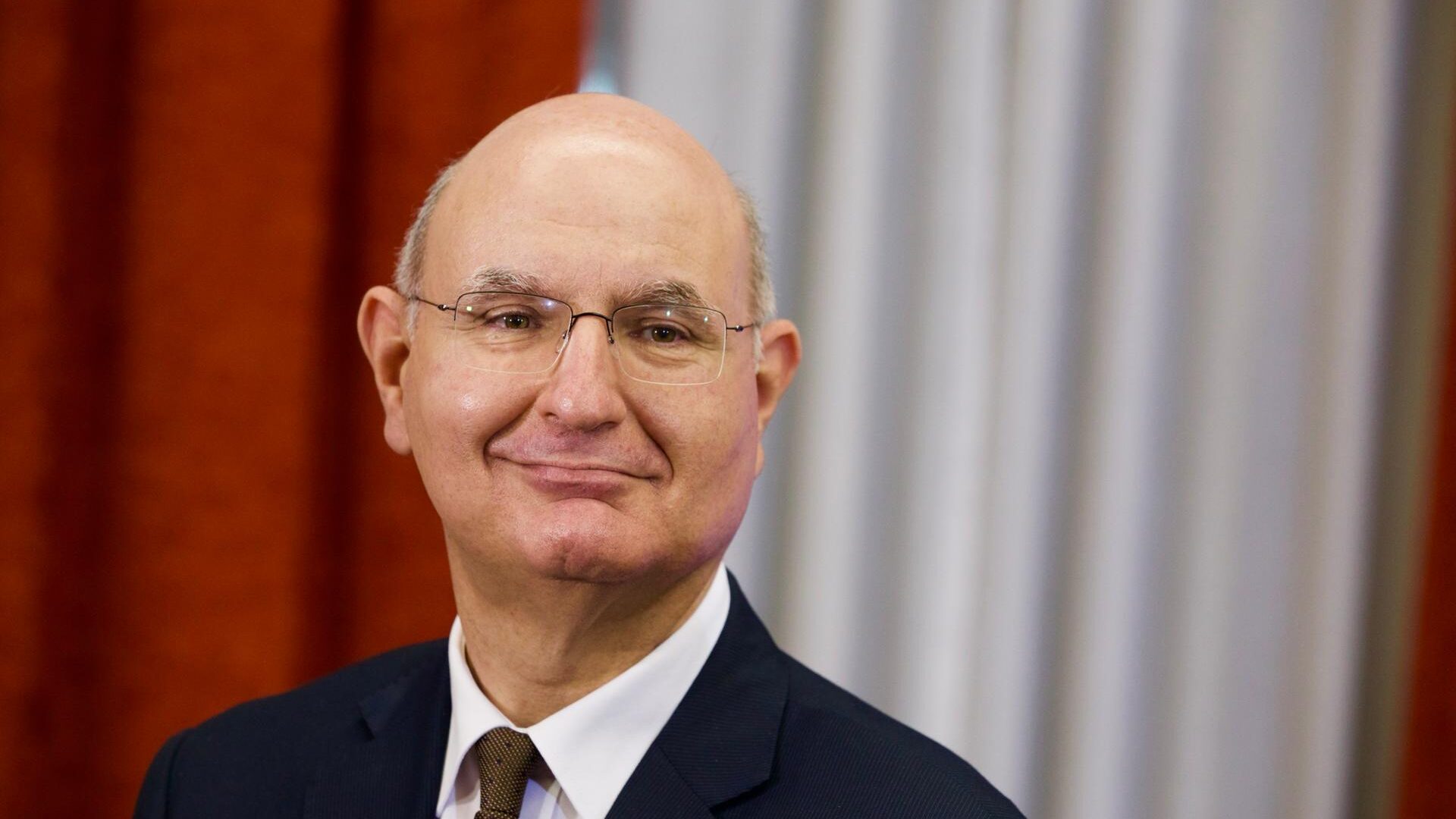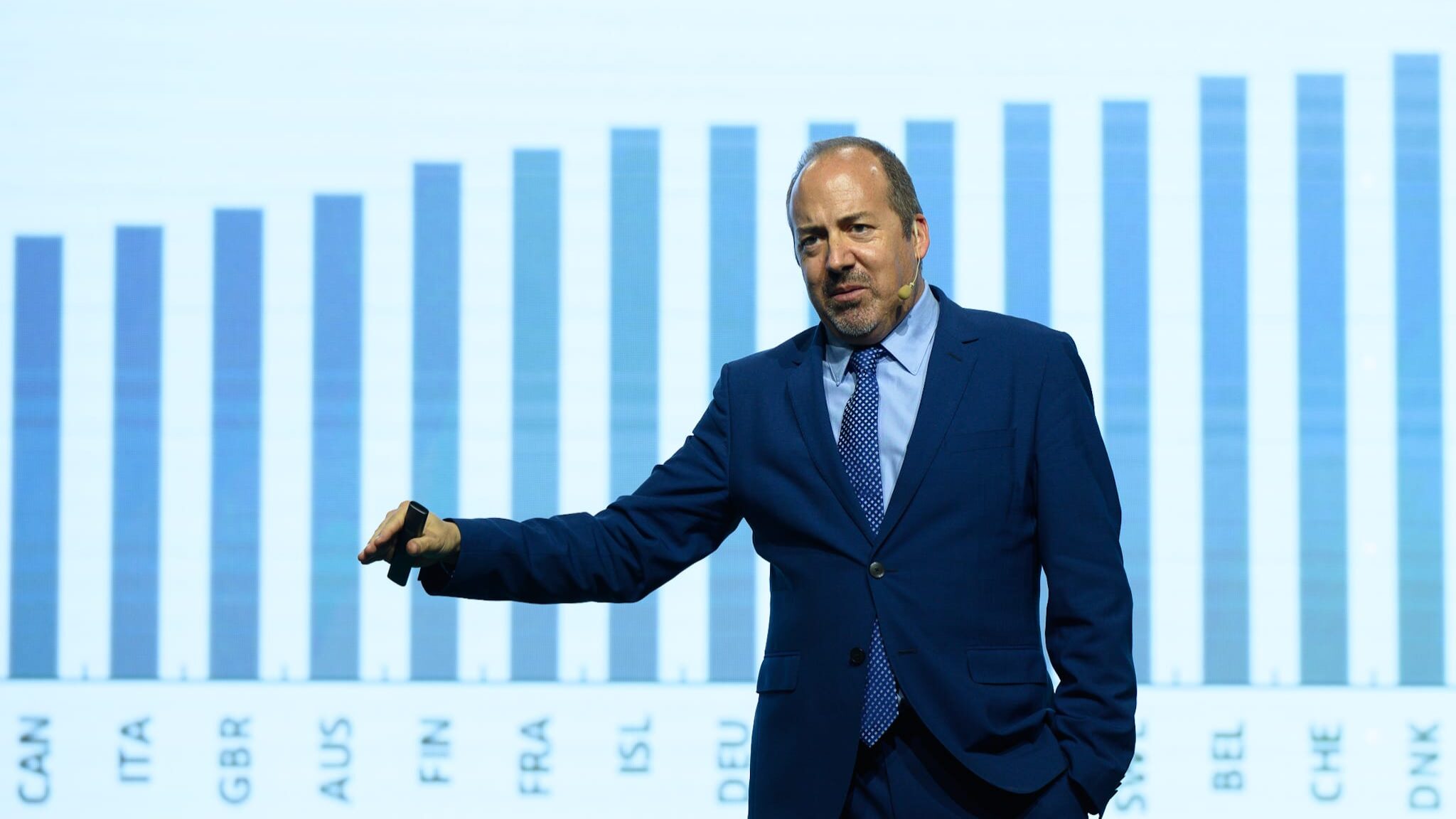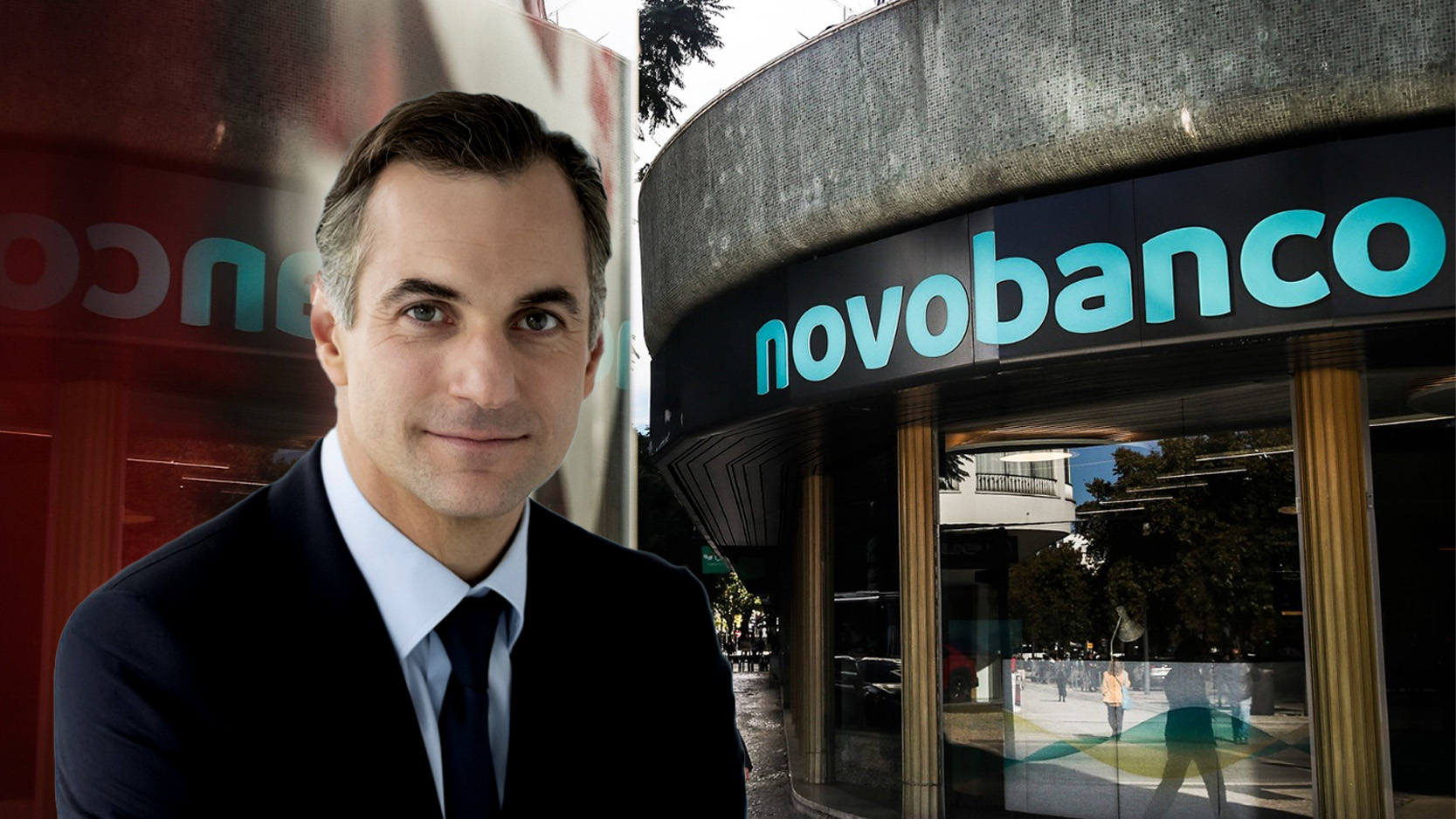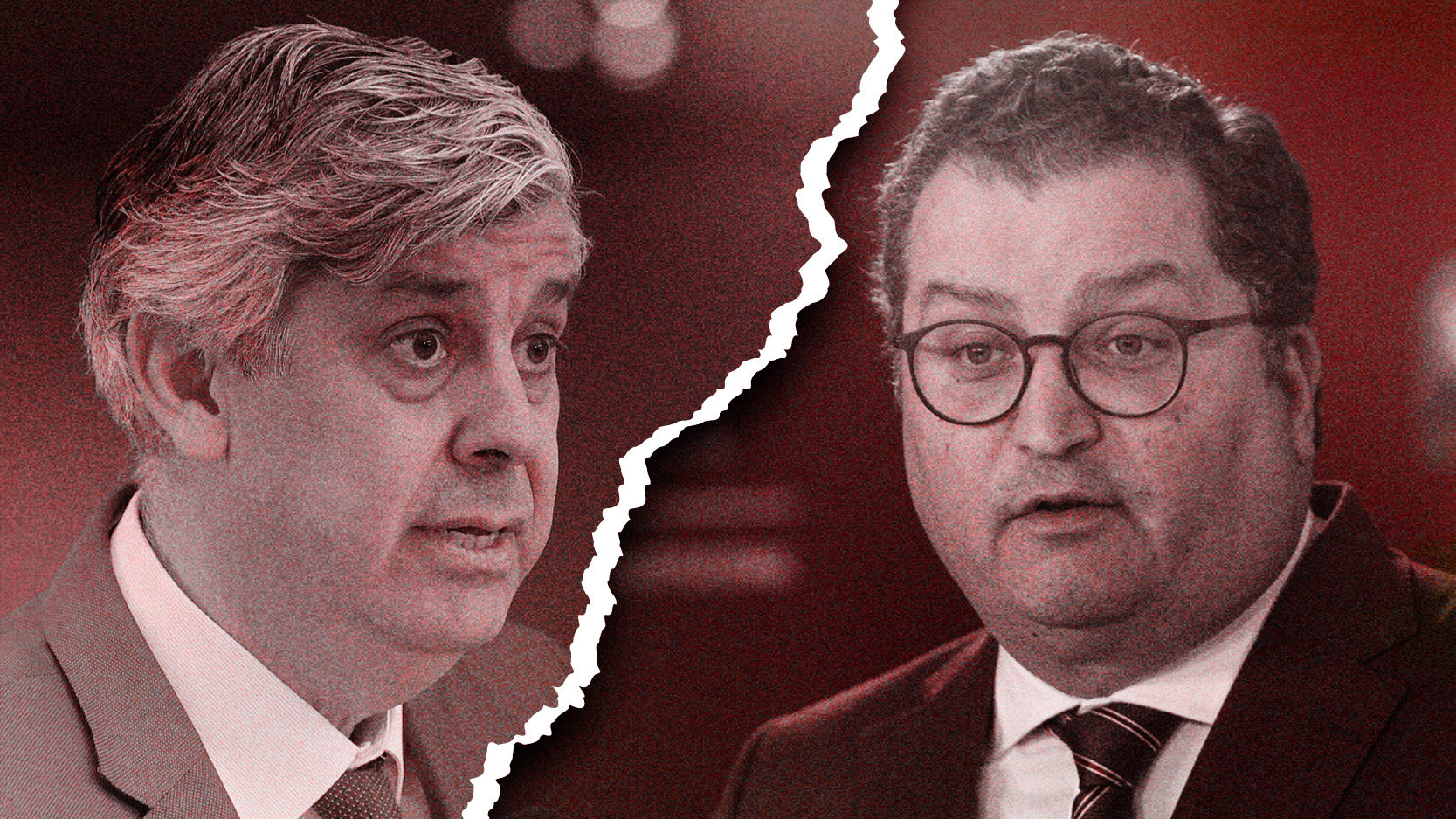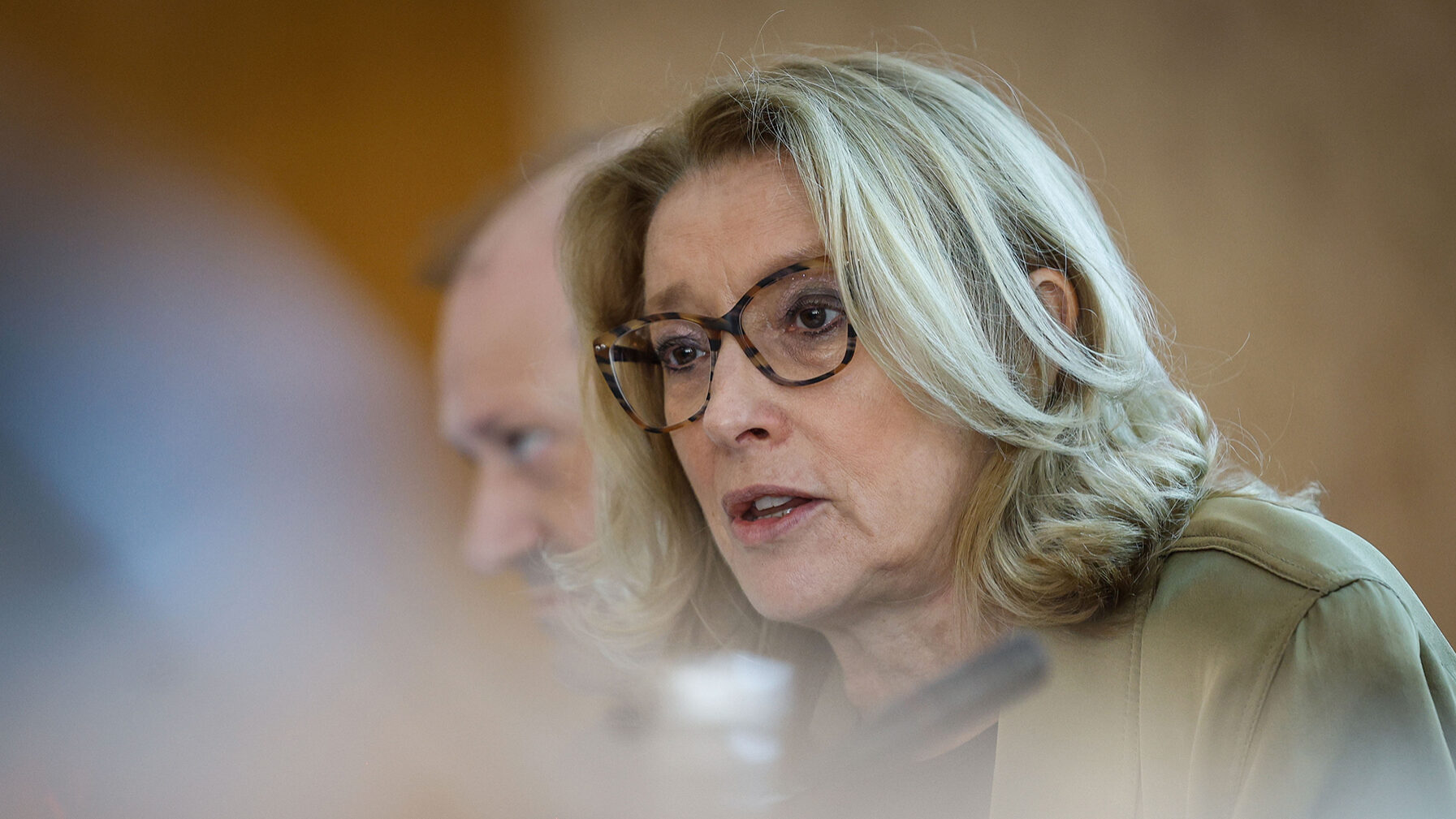From the economy to interest rates: what Álvaro Santos Pereira, the next governor of the Bank of Portugal, thinks
Former Economy Minister Álvaro Santos Pereira is far from being a 'hawk' on monetary policy and is a staunch advocate of reforms to get the economy growing and protect public finances.
Álvaro Santos Pereira was the name chosen by Luís Montenegro’s government to succeed Mário Centeno as head of the Bank of Portugal. He has been chief economist at the Organisation for Cooperation and Development (OECD) for a year and a half, an institution in which he has held office since leaving Pedro Passos Coelho’s government in 2013, with much criticism of ‘”intrigue” and Paulo Portas, after the episode of the centrist’s “irrevocable resignation”, in which the then Economy Minister ended up being collateral damage.
Before and during the Troika period, he was known for preferring to be called Álvaro rather than minister — influenced by his international academic experience — and for defending the internationalisation of Portuguese products, such as custard tarts. With a career abroad and experience in government, the next governor to represent Portugal at the European Central Bank (ECB) table is far from being a hawk. Álvaro Santos Pereira is above all an economist and his statements on inflation and interest rates show it: he weighs up the effect of monetary policy on families. Over the years, he has been known to be almost obsessed with defending reforms, especially in justice and public administration, which he believes will help public finances.
Far from being a hawk
Álvaro Santos Pereira will be one of the central bankers to sit on the Board of Governors and is far from having a more restrictive stance on monetary policy, not being part of the team known in Frankfurt as the hawks. The next governor of the Bank of Portugal is above all an economist concerned with the effects that changes in interest rates have on the real economy and employment.
During the pandemic, he praised the role of the institution led by Cristina Lagarde. “The ECB’s response alone has helped us buy a lot of time. It helped us a lot and will continue to do so”, he said at the time, in an interview with Lusa. Later, in May 2022, he said he was worried about rising inflation and warned of potential “dramatic effects”. “I’m worried about the loss of income and purchasing power, and I’m even more worried if inflation gets out of control, which is why we see central banks in various countries acting more decisively”, he argued.
“What consequences will a 1% or 2% increase in interest rates on home loans have for states? It will have a dramatic impact on people in many countries”, said the former prime minister, adding that governments “either change taxes or try to protect the most vulnerable through income support, which is more effective but takes longer” to have an effect.
Back in 2023, he admitted that interest rates needed to be normalised, but that a rapid rise like the one we’ve seen has consequences. That’s why he argued that there were several alternative policies to look at, which would boost the economy.
The fall of BES? “The biggest fraud and financial pyramid in our history”
Eleven years after the resolution of Banco Espírito Santo (BES), the case is still dragging on in the courts. Álvaro Santos Pereira may have to deal with the dossier, as the supervisor is the target of several lawsuits from investors and former BES clients over the resolution measure (2014) and the retransfer of bonds to the bad BES (2015). In 2019, he pointed the finger at the judiciary, criticising the slowness of the process.
“Five years after the biggest fraud and financial pyramid in our history was uncovered, no one has been arrested or even tried”, wrote the former Economy Minister in a Twitter post, alluding to the collapse of BES. “Faced with this, how does our justice system intend to remain credible in the eyes of the citizens? Why haven’t the parties done more?”, he asked.
Independence of institutions
Álvaro Santos Pereira has long defended the strengthening of institutions and their independence from political power. In a recent interview with Expresso, he emphasised this argument: “Jerome Powell, chairman of the US Federal Reserve, said something fundamental at the conference: for central banks to have an impact and be guarantors of financial, banking and price stability, there has to be independence”.
“So for me the most important thing is that the Central Bank is independent of political power. The Central Bank cannot be political, it has to be independent and technical”, he stated.
“Lobbies never had my sympathy”
The next governor of the Bank of Portugal is also known for his fight against excessive rents in the energy sector. It was precisely because of the infamous CMECs that he went to Parliament to criticise the “lobbies” that are very powerful in the energy sector. “The lobbies have never had my sympathy”, he told MPs. He would later refute the idea that he had been sacked as minister by the “EDP lobby”.
In an interview with ECO last year, he considered that lobbying regulation still has “a long way to go”. “It’s an area in which Portugal can increase transparency so that the most dominant companies don’t have an inordinate influence compared to other companies”, he said.
“When lobbying isn’t regulated, there isn’t enough transparency. This means that the incumbent companies, the dominant companies, can have a much greater influence on legislation or the government or public tenders than they should. Something that wouldn’t happen if there was greater transparency”, he said.
In banking, he will face other problems, namely market competition, which translates into low interest rates on deposits and many barriers to changing banks, as the Portuguese Competition Authority recently pointed out. Criticism of the banks’ behaviour on the subject of deposits was a recurring theme under Centeno. How will Santos Pereira act?
The next governor has emphasised the importance of competition to the ECO in the past. “It’s important, firstly, that the regulators remain very active and show exactly how important it is to have an increasingly strong competition policy. And, on the other hand, it’s essential that we increase competition in these sectors, especially in services, which still has very high barriers, so that we can have a more productive and dynamic country”, he said.
“The important thing is that the debt continues to fall”
He is an advocate of fiscal discipline, but prioritises public debt over the budget deficit. In an interview with ECO in July 2024, he emphasised that reducing the public debt ratio “has to be a total priority”.
“The most important thing is that if there are spending measures, there have to be compensatory measures. What is important is that the debt continues to fall. That’s fundamental. Fiscal prudence is fundamental for the country to continue to recover and, above all, to continue to be an attractive country for investment and not have problems in the future. It’s essential to maintain fiscal prudence, especially for a country that has a public debt close to 100% of GDP, as Portugal does”, he argued.
But in order to do so, he insisted on a theme close to his heart: structural reforms. “The reforms we’re talking about in terms of competition, product market reforms and making the country more competitive and less bureaucratic, help public finances. By making these reforms – by increasing competition and reducing bureaucracy — it will help create jobs, it will help attract more investment, leading to more growth and a lower debt-to-GDP ratio. Therefore, it’s essential to lower the debt”, he explained.
When asked by Expresso in June whether it was essential to maintain budget surpluses, he said that “it depends on the circumstances”. “We think that at least small budget surpluses can help”, he noted.
Advocate of public administration and justice reform
A fervent advocate of structural reforms, in a presentation at the Portuguese Business Association (AEP), Álvaro Santos Pereira advocated that a “reform of public administration and justice” is essential, as well as investing in education and training and in consolidating and revitalising the business fabric. For the new governor, it is imperative to “reduce context costs”, with “less bureaucracy”.
“As we’re going through a period in which the economy is growing reasonably, it’s important to think about what we can do to make the economy grow by 3% or 4%. And the way [to do that] is to reform”, he emphasised. In an analysis of the main constraints and future challenges facing the national economy, he emphasised that “reforms are something that Portugal is lacking”.
Álvaro Santos Pereira has also been an advocate of the fight against corruption, an issue that opposed him to António Costa’s government. In January 2019, after corruption was highlighted for the first time in an OECD report on the Portuguese economy, the economist was then director of the OECD’s country studies department. The conclusion was based on the work of the former minister’s team and led the government to press for the chapter to be removed. The publication was maintained, but Álvaro Santos Pereira was not present at the presentation of the document. He later went to Parliament to defend it.
Months later, in October, he considered that there was impunity for those who “led the country into bankruptcy”. “The culture of impunity we have in our country is a disgrace to our democracy and our justice system. The fight against corruption must be a goal of all parties”, he said.
“It’s important to put the fight against corruption on the agenda. So many years after the country went bankrupt and we had the biggest financial crisis in our history, we’re still waiting for there to be consequences”, declared Santos Pereira, on the sidelines of the Fábrica 2030 conference, organised by ECO in partnership with the Serralves Foundation.
Mechanisms to allow later retirement
With people living longer and longer, and more comfortably, mechanisms should be created so that those who want to can work later, Álvaro Santos Pereira argued in October 2020. The next governor of the Bank of Portugal pointed to the need to “change the labour market” in order to contribute to the sustainability of the pension system.
Santos Pereira emphasised the need to reform Social Security, particularly with regard to savings. “We save about half of what the European Union saves”, he said, something that is related to the pension system, which “doesn’t incentivise saving”. The then director of the OECD’s Economics department argued that we should “simplify the possibility” of saving through Social Security, incentivising savings and using the system to “be able to increase national savings”.
